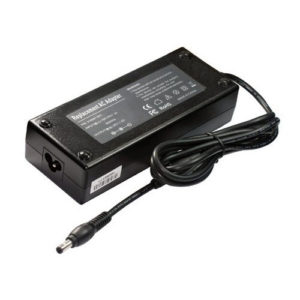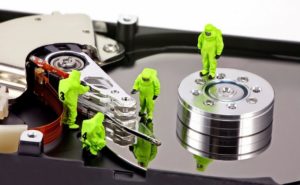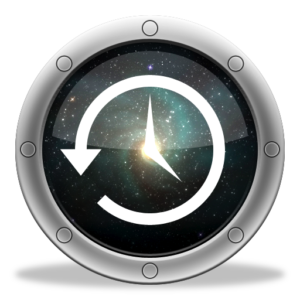When it comes time for the purchase of a computer, many people are at a loss as to what they actually need versus what some salesperson is trying to sell them. We want to make that process easier for you, so we will break down some of the basics in this post. For the purposes of this post, we will be focusing on Intel-based, Windows PCs.
What Do You Want To Do?
This is the first question that you should ask yourself. Determining what you are going to be using your computer for will help you establish a baseline for the specifications of new computer.
- Are you mainly going to be doing things like reading email, visiting websites (news, social media, Internet searching) with maybe the occasional document created?
- Are you going to be editing large or hi-res photos or video? Creating complex presentations or accessing large databases?
- Are you going to be playing resource-intensive games or watching a lot of streaming video?
- Is this going to be a work computer with heavy daily use?
These are the types of questions you should answer before you start looking at computers. If you need help figuring it out, the experts at Geek Easy Computers are always available to assist you. Whether a home or business computer, we can help you narrow down what will fulfill your needs.
What’s Next?
Certain activities will dictate a more obvious requirement of computer specifications, such as high-end gaming, video/music editing, or a heavy usage workstation. For the purposes of this section, we are looking at a general usage home/office computer.
RAM
For general purposes (and most operating systems), the de facto standard is 4GB minimum. In typical cases this amount of RAM is sufficient to handle most mundane tasks such as word processing, simple spreadsheets, viewing photos, streaming video, and playing more basic games. For better multitasking and snappier response, 8GB is recommended, but more RAM is always better. Especially with newer operating systems like Windows 10 and Mac OS 10.13 High Sierra.
Storage (Hard Drive)
When it comes to storage, it’s always better to have more than you need. If in doubt, go bigger. Currently for standard HDDs (conventional drives) the popular size is 1TB (1000 GB). If you opt for an SSD (solid state drive) 250GB – 500GB as your primary drive, then a 1TB HDD is a good pairing for storage. See our previous article on SSDs & HDDs.
Graphics
For everyday productivity tasks, the integrated graphics processor found on many logic boards is typically adequate. However if you want to get into more graphically demanding pursuits such as high-end photo editing, video production, or gaming, you are going to need to upgrade to a dedicated video card (GPU). GPUs can range from less than $100 to several hundred dollars depending on what type of performance you desire. Check back for an upcoming article on GPUs.
Processor
This is the core of your computer. The choice you make here will affect the overall performance and capabilities of your computer. For the purposes of this post we will focus on Intel processors as they are arguably the business and gaming standard.
Intel’s current processors are the basic Pentium series and the 8th generation Intel Core series of CPUs – Core i3, Core i5, Core i7 and the new “Extreme” Core i9s.
- Pentium – This is Intel’s very basic line of processors. They are generally for light computer use. The 7th generation Pentium processors were like Core i3s with lower clock speeds.
- Core i3 – This is the everyday level of the series. This CPU is more than adequate for tasks like surfing the web, listening to music, word processing, etc. The newest i3 processors can even handle light or casual gaming. This is the business entry-level of processor.
- Core i5 – This is the minimum standard for those doing more advanced tasks such as complicated, multi-page documents, photo editing, music production and playing graphically demanding games. An i5 is our recommended processor speed for average business systems.
- Core i7 – This is the high-end of this series. This CPU is the choice of any serious gamer or enthusiast. It should also be the choice of any professional photographer, videographer, musical producer, or any business using high end data driven software. It is also a great choice for the home user as it lengthens the amount of time before the demands of software outstrip the capabilities of your computer.
- Core i9 – This is Intel’s new bleeding-edge series that has replaced the “enthusiast” tier of Core i7s. These would be used for extreme gaming, mega-tasking, very high-end content creation. This series has Intel’s first 18-core processor.
Recommended Starting Configurations
Budget:
CPU: Intel Pentium
RAM: 4GB RAM
Hard Drive: 500GB hard drive
Everyday:
CPU: Intel Core i3
RAM: 4GB RAM
Hard Drive: 1TB hard drive
General Business or Gaming:
CPU: Intel Core i5
RAM: 8GB RAM
Hard Drive: 250GB SSD and\or 1TB hard drive
Demanding Business, High-End Gaming, Power Users
CPU: Intel Core i7
RAM: 16GB RAM
Hard Drive: 500GB SSD with optional 1-4TB storage drive
The above information covers the basics of choosing a new computer. Hopefully it gives you more insight on what your family or business needs in new hardware. Like all things, computer needs like storage and RAM can vary, but these are a general guideline for picking out a new PC based on how you plan to use it. If you have further questions, feel free to give us a call, email, or use the form on this website to contact us! We are always available to help make your technology easier!
 |
Adonis Pointer is a photographer, a collector of vintage razors, and a certified technology geek!
Adonis has been involved in computer technology since well, a LONG time! He has been involved in nearly every aspect of the industry from sales to repair to training to consulting. As the Social Media Manager he writes the majority of the posts on the Geek Easy Computers blog. |








